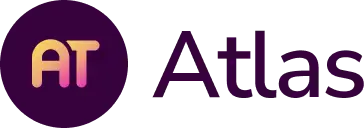By Kimberly Elms, Curriculum and Assessment Coordinator for ACS International Schools
Over the last few years, the topics of resiliency and growth mindset have garnered a lot of attention as critical ingredients to success and well-being. Can we develop resilience and growth mindsets while progressing student thinking in our classrooms? Can we do this and still respond to external testing pressures and other measures of academic accountability?We may find insight within the research of learning progressions.
Most of us subscribe to the modern educational theory that includes the fundamental belief that all students, no matter where they are in the learning process, can progress given that they:
- are engaged and participating,
- are motivated to give effort, and
- are given appropriate challenges and targeted learning opportunities.
Utilizing learning progressions is an evidence-based way of providing targeted learning opportunities which are the critical gateway to engagement and motivation in our classrooms. Moreover, applying learning progressions to optimize our formative assessment schemes will provide a learning environment that is conducive to a growth mindset.
Having a growth mindset in education focuses our perspective on learning as a process and causes us to think about how understandings and skills are developed in an instructional environment. This perspective is centered on the learning principle that prior knowledge must be linked to and built upon in order to increase cognitive understanding.
What Is a Learning Progression?
We can think of learning progressions as roadmaps. These maps can be useful for several things, including: developing curricula, creating valid summative assessments, optimizing formative assessments, and planning learning experiences. Learning progressions are defined as a sequence of successively more complex ways of reasoning about an idea or concept. Including specifications of how students should make use of these ideas in the progression facilitates the development of assessment items and instructional tasks that best reveal cognitive understanding.
A Learning Map Connects Instructional Planning & Student Learning
The use of learning maps and backward planning are inherently complementary and provide context, promote inquiry, and guide instruction.
Use learning maps in your instructional planning process >>
How Do Learning Progressions Set a Growth Mindset?
Learning progressions help structure learning goals (or standards) by illuminating key tasks.
By building clear notions of what students are expected to learn and how thinking develops as they experience and engage with coaching, learning progressions help teachers plan instructional sequences and performance indicators that provide opportunities for multiple learning pathways. For students, clear and understandable expectations and delineated tasks help establish perseverance to reach long-term goals.
Learning progressions] help pinpoint a student’s current level of understanding within a broader instructional goal (or standard).
Examining performance on key tasks and the links between levels on a learning progression can suggest ways to help students proceed to the next level or progress their thinking and thus foster a growth mindset. Research shows that if we reframe a challenge as an opportunity to learn, rather than an obstacle to overcome, students are more apt to respond with constructive thoughts and show persistence.
How Do Learning Progressions Help with Standards?
Most of us teach in an environment that has some kind of external measure of student progress and academic achievement. Standards often tell us what and when a specific target should be taught/learned, but now always how. Learning progressions are inherent in standards, but not directly stated, therefore, a learning progression is typically based on learning objectives that have been ‘unpacked’ to reflect the right level of complexity.
By basing learning progressions on the applicable classroom instruction and assessment, you align to the standards-based external assessments. When used to drive and inform a formative feedback system, students and teachers will benefit, both in academic gains and in skills and dispositions that promote resiliency and growth.
What Should I Consider with Learning Progressions?
Creating learning progressions is challenging.
This is a process that takes considerable time and thought. You may need to increase your own understandings, find a learning progressions partner and/or consider your capacity to implement prior to jumping in.
There is no single, absolutely correct progression for any given learning aim or standard.
Learning progressions depend heavily on students’ prior knowledge, even if it’s incorrect. We also know that students don’t progress neatly, but changes occur simultaneously and in multiple, interconnected ways. However, some research indicates that any progression will benefit students as long as it is pedagogically sound.
Getting the granularity right is important.
Learning progressions that are too broad may not provide enough information to help students in the “messy middle” of mastery and ones that are too complex may inhibit good instructional sequencing. A good rule is to use only the most significant sub-skills or enable knowledge needed to show mastery of the curricular aim and devolve from them only if student performance dictates.
Take the next step and provide context, promote inquiry, and guide instruction with learning maps.
[box] FariaPD supports teachers and leaders around the world with hands-on, active and creative professional development experiences. Join one of our online or in-person professional development events, each designed to support the unique goals of your school or district. FariaPD is part of Faria Education Group, an international education company that provides services and systems for schools around the world including ManageBac, a curriculum-first learning platform, OpenApply, an online admissions service, and Atlas, a tailored curriculum management solution for schools. [/box]
Contributing Author:
After spending 12 years as a teacher and curriculum director in Arizona, Kim is currently based in the London area as the Curriculum and Assessment Coordinator for ACS International Schools. Her professional interests include innovative curriculum design using neuroscience, game theory, and transformative play. She is dedicated to creating personalized learning experiences that inspire students to be active in and curious about the world around them. When she’s not chasing her passion for developing schools that dare to be different, she loves to take a good country ramble that ends in a good country pub.

